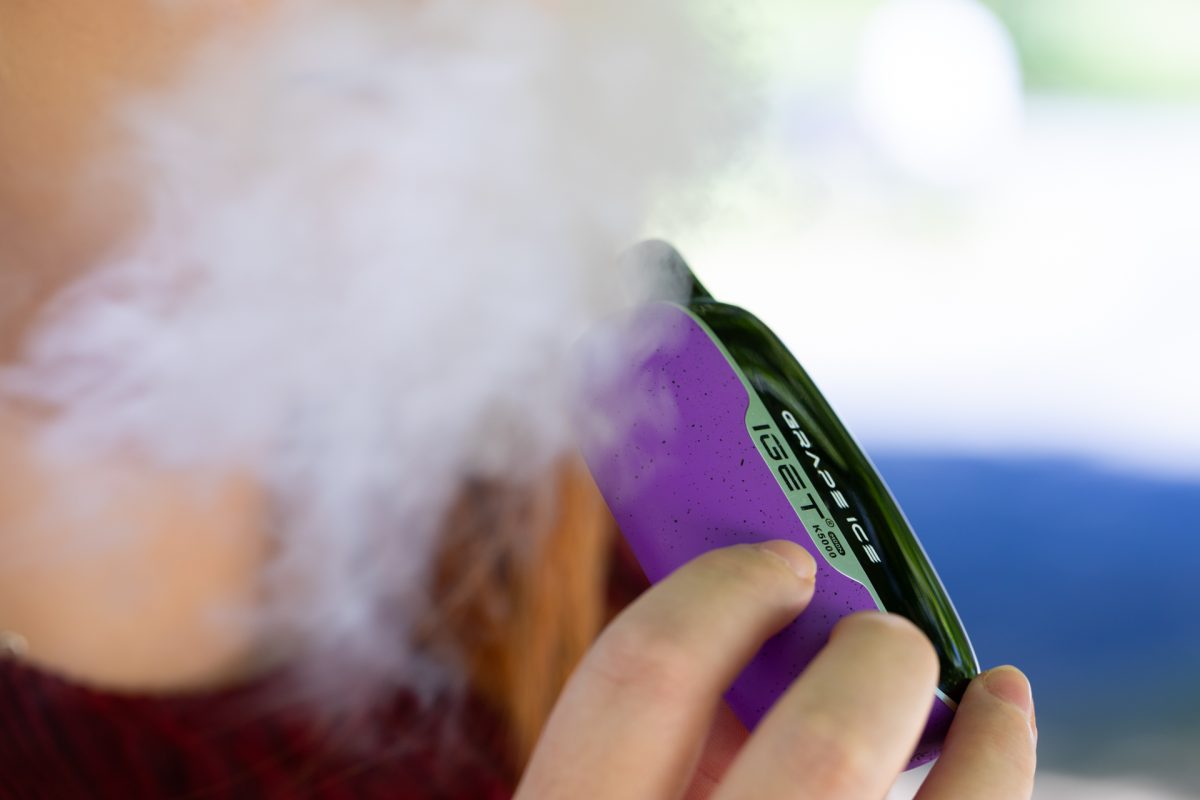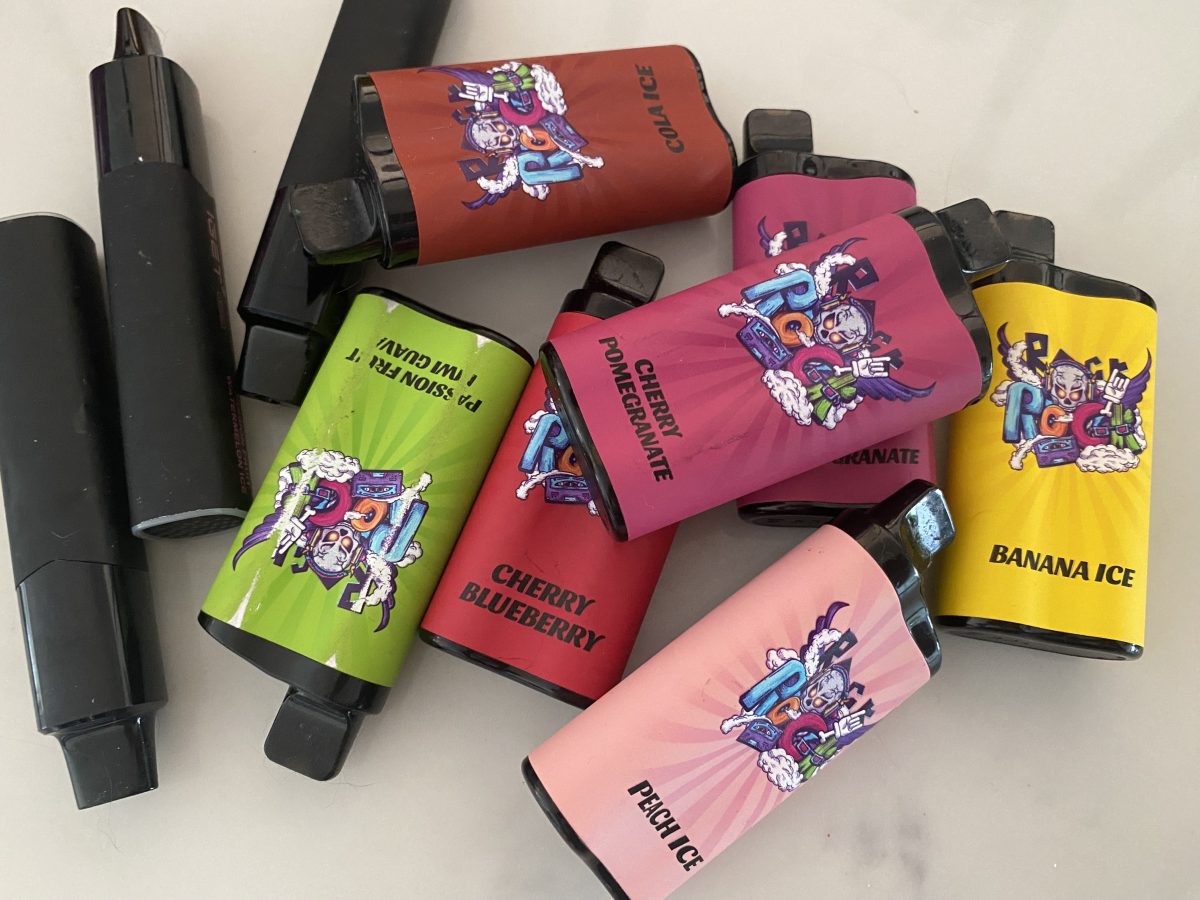
When it comes to kids and vapes, members of the public remain concerned about predatory marketing and selling practices. Photo: iStock/whitebalance.oatt.
A month since the Federal Government’s import ban on single-use vapes kicked in, members of the Illawarra public remain dubious about the selling practices of certain retailers, with some taking to social media to voice concerns about the marketing and selling practices of lolly and corner shops.
But what, if anything, can members of the public do according to the current law?
Unlike nicotine vapes, it is not currently unlawful to supply zero nicotine vapes outside of pharmacies under Commonwealth or state and territory laws. Retailers can still “run down” supplies of disposable vapes imported into Australia before 1 January 2024, so long as they do not contain nicotine or any other medicine and do not make therapeutic claims.
However, the ability for consumers to confirm the presence of nicotine in vapes is limited. The Therapeutic Goods Administration (TGA) conducts laboratory testing of vapes suspected of containing nicotine and publishes results on its website, but this list is not exhaustive – and it never could be, according to Dr Celine Kelso, an analytical chemist at the University of Wollongong’s School of Chemistry and Molecular Bioscience.
“New kinds of products are coming to market all the time. We’ve analysed about 1500 and we know that’s just the tip of the iceberg,” she said.
“However, our studies have found that more than 95 per cent of the vapes contain nicotine, whether stated on the label or not.”
A recent study conducted in partnership with NSW Health looked at 750 samples, 428 of which were seized from shops selling them illegally and the rest, disturbingly, confiscated from high school students. When tested, 98.8 per cent of those seized from stores and 97.5 per cent of those seized from students were found to contain nicotine.
Of the participating schools, three were from the Illawarra region.

These fruity-flavoured vapes confiscated from a school student in the Shoalhaven region have an average measured nicotine concentration of 5 per cent, equating to about 600 mg of nicotine – equivalent to the concentration found in about 16 packets of cigarettes. Photo: Region.
In a paper published earlier this month, lead author Associate Professor Becky Freeman from the University of Sydney said although it had been illegal to sell nicotine vapes since 2021, purchasing e-cigarettes remained alarmingly common and easy for young people.
“Currently, non-nicotine vapes are exempt from regulation that restricts vape access to those with a doctor’s prescription. It’s a legal loophole that allows retailers such as tobacconists, convenience stores, chicken shops and petrol stations to get away with selling vapes under the guise that they don’t contain or aren’t labelled as containing nicotine. The reality is that most of these e-cigarettes do contain nicotine, and even non-nicotine vapes are harmful,” she said.
“The alarming increase in youth vaping has gone hand-in-hand with the increasing retail availability of these products. The proposed reforms will be welcomed by schools, parents and teens struggling with the vaping epidemic.”
The paper also took aim at retailers, who the authors said were “knowingly selling nicotine-containing vapes to young people”.
“Vapes are sold in local shops near schools, with enticing displays of lollies lining the entrance, attracting the attention of young people. The vapes come in the same candy-scented flavours and are sold illegally to teens and children,” co-author and Cancer Council CEO Australia Professor Tanya Buchanan said.
“Those advocating for more open access to vapes say that responsible retailers should be allowed to sell vapes like any other consumer good. These groups happen to have a commercially vested interest in selling these products. Many of these so-called ‘responsible retailers’ are also currently knowingly selling nicotine vapes to minors.”
While the TGA does not regulate the ability of consumers to inspect products in retail premises, in a statement, it encouraged consumers to contact their state or territory fair trading regulator if they suspected a model of vapes sold in retail stores contained nicotine. A perceived breach of the Therapeutic Goods Act 1989 can be reported via the TGA website.
The supply of all therapeutic vapes (both nicotine and non-nicotine) will be restricted to pharmacy settings from 1 March. New controls will be accompanied by increased enforcement and information-sharing powers.
To introduce and enforce these reforms, the government is providing an additional $25 million to the Australian Border Force and $56.9 million to the TGA over the next two years.


